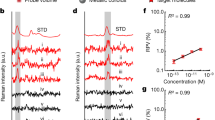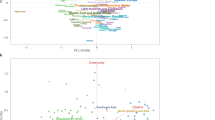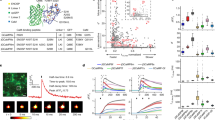Abstract
ALL but a few1 of the numerous reports in the past few years on the application of electromigration or electrophoresis on paper have used a comparatively low voltage. Recently, however, a method of paper electromigration which uses a high constant-voltage current has been developed in these laboratories and appears to offer a more convenient and rapid procedure than ordinary paper chromatography.
This is a preview of subscription content, access via your institution
Access options
Subscribe to this journal
Receive 51 print issues and online access
$199.00 per year
only $3.90 per issue
Buy this article
- Purchase on Springer Link
- Instant access to full article PDF
Prices may be subject to local taxes which are calculated during checkout
Similar content being viewed by others
References
J. Amer. Chem. Soc., 71, 2942 (1950). Suzuki, T., and Maegawa, Y., J. Pharm. Soc. Jap., 71, 1298 (1951).
Anal. Chem., 22, 154 (1950).
Nature, 166, 997 (1950).
Author information
Authors and Affiliations
Rights and permissions
About this article
Cite this article
HASHIMOTO, Y., MORI, I. & KIMURA, M. Paper Electromigration of Flavonoids and Sugars using a High Constant-voltage Current. Nature 170, 975–976 (1952). https://doi.org/10.1038/170975b0
Issue Date:
DOI: https://doi.org/10.1038/170975b0
This article is cited by
-
Papier-Elektrochromatographie der Aminosäuren des Blutserums
Experientia (1959)
-
Mikroelektrophorese
Mikrochimica Acta (1956)
Comments
By submitting a comment you agree to abide by our Terms and Community Guidelines. If you find something abusive or that does not comply with our terms or guidelines please flag it as inappropriate.



